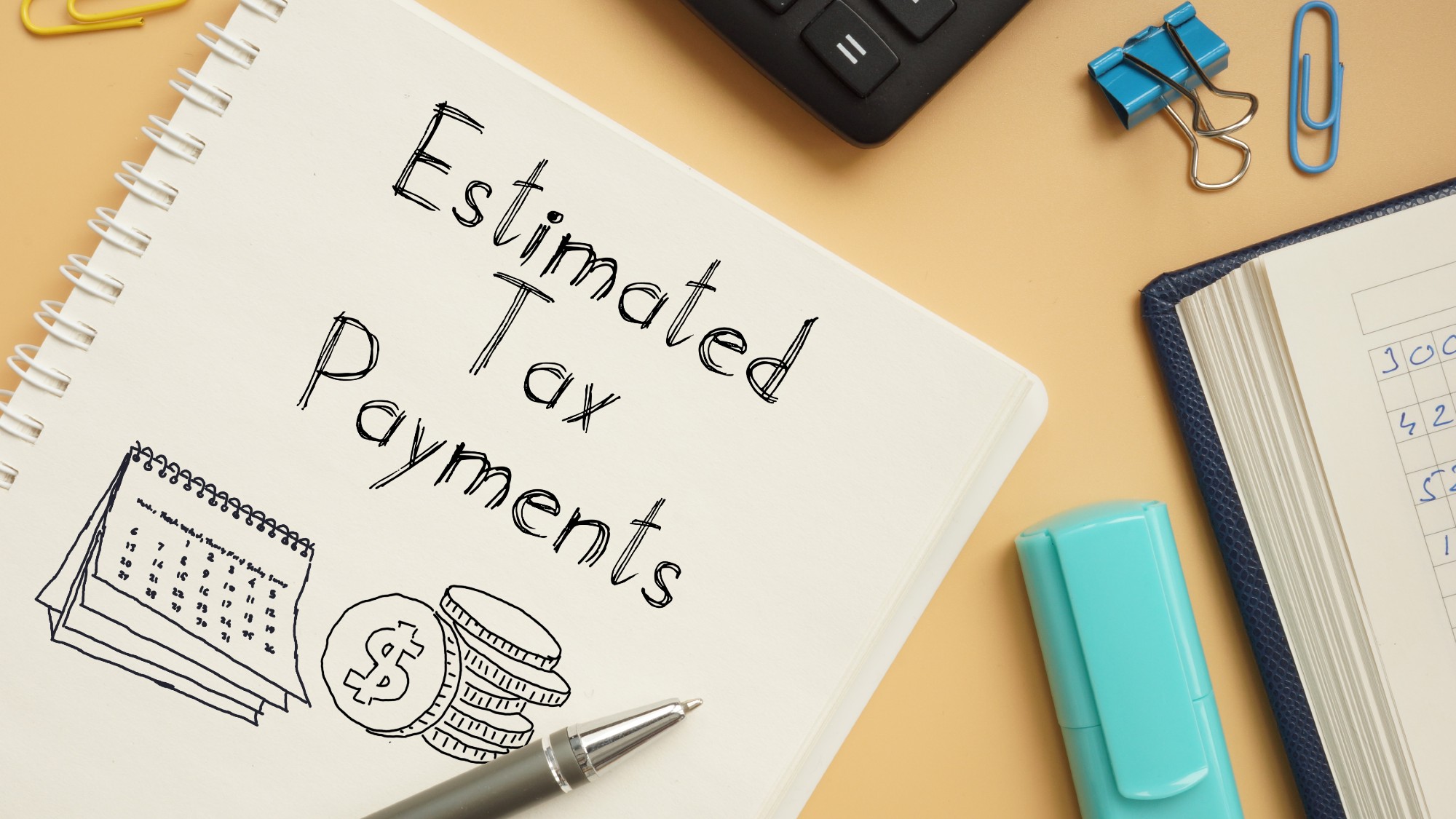The financial ins and outs of retiring abroad
Fancy spending your golden years in, say, France?


A free daily email with the biggest news stories of the day – and the best features from TheWeek.com
You are now subscribed
Your newsletter sign-up was successful
Retiring in another country can hold a lot of appeal, whether due to the potential for a lower cost of living or simply the allure of a new adventure in your golden years. But actually making a your goal a reality requires a good deal more work than packing up your belongings and shipping them overseas when you hit retirement age.
Choosing a country
A first step is to pinpoint where, exactly, you'd like to settle when you retire. This requires a good bit more research than just looking for places with nice weather. Start by making a list of what matters to you the most, Condé Nast Traveler suggested, whether that's affordable housing, safety and political stability, easy travel to and from the U.S., or good weather. Also consider where people will speak English, if that's your only language. All of these factors could help you start to narrow down the possibilities.
There are a number of resources to help you identify appealing places to retire. For instance, Investopedia identified the top five spots to retire abroad based on an in-depth scoring system. International Living also publishes an Annual Global Retirement Index, which takes into account input from retirees living in those locations.
The Week
Escape your echo chamber. Get the facts behind the news, plus analysis from multiple perspectives.

Sign up for The Week's Free Newsletters
From our morning news briefing to a weekly Good News Newsletter, get the best of The Week delivered directly to your inbox.
From our morning news briefing to a weekly Good News Newsletter, get the best of The Week delivered directly to your inbox.
Or, you might just go where retirees have gone before: The most retired U.S. workers receiving benefits abroad are located in Canada, Mexico, Japan, Germany, and the United Kingdom, Forbes reported, citing data from the U.S. Social Security Administration.
Navigating visa and residency requirements
Visa and residency requirements can vary significantly from country to country. Some countries will offer citizenship if you have a relative who was born there. Others may have residency permits that are "limited or renewable and will come with application and renewal fees," and you will "often have to live in the country for a certain number of years before you can gain permanent residency," Forbes said. In other cases there are "specific visas for retirees who can demonstrate that they earn a certain amount of income per month," or a residency offer might be made to foreigners who purchase real estate for a certain amount, Forbes added.
"Find a place with a fairly straightforward residency process, and one for which you can qualify," Kathleen Evans, who has permanent residency in Costa Rica, told Condé Nast Traveler. "Not every country is looking to woo foreign residents." For instance, in some countries, Social Security payments are restricted for residents, whereas in other places, there are financial incentives for settling.
You can find more information on the specific visa and residency requirements for each country on the U.S. State Department's website. While you're there, also consider checking State Department information on the safety and political stability of your top-choice countries.
A free daily email with the biggest news stories of the day – and the best features from TheWeek.com
Finding housing
Since you're likely planning to settle in this location for the remainder of your years, your first instinct might be to purchase a home. But before you go all in, try renting first rent, Investopedia suggested, given that "living in a country is very different from being a tourist." You should also visit your desired location in more than one season, and especially when weather conditions aren't ideal, Investopedia recommended.
If you still want to buy, know that the process of buying won't be the same as in the U.S. "U.S. banks often won't approve mortgages for foreign properties," according to Forbes, and "it can be difficult to get local financing as a U.S. citizen in another country."
To make a real estate purchase in a foreign country, "explore your options with the help of a lawyer who understands the local market," Forbes said. Or, if you can, you might aim to make an all-cash purchase to skip the financing hassles.
Getting your finances in order
When it comes to bank and retirement accounts, "Americans who retire abroad should generally keep most of their money in the U.S.," The Wall Street Journal said. This will allow them to take advantage of the tax benefits offered by their retirement accounts.
However, the Journal warned that "some U.S. banks and brokerage firms drop customers with foreign addresses." Check with your financial institution and move any money prior to making the move.
You'll also want to be aware of fees for wire transfers and ATM transactions before moving, as well as whether your credit card charges foreign transaction fees. And take a look at currency conversion rates, the Journal recommended.
Don't forget about health care
Another factor to work out before retiring abroad is health care, as the Journal noteed that "Medicare doesn't generally cover services outside the U.S." In certain countries, "you may find that health care is so affordable that you don't need insurance," per Investopedia. But in other instances, you might need an international health insurance policy.
Look into the quality of care in the country you're moving to — it might not be up to the standards you're used to in the U.S.
Sorting out your taxes
You might think you can wave goodbye to taxes when you leave the U.S., but, in fact, "your income is subject to U.S. income tax regardless of where you live," said the Journal, and this includes taxes for pensions, 401(k) plans, and Social Security benefits. In fact, you could end up paying taxes to both the U.S. and the country to which you've relocated, though this will depend on which country you've chosen to call home: The U.S. has tax treaties with certain countries that "allow for retirees abroad to be either taxed at a reduced rate or entirely exempt from foreign taxes," Condé Nast Traveler noted.
You'll also need to complete some paperwork to avoid hefty penalties. For instance, if you need to submit a report of Foreign Bank and Financial Accounts to the Treasury Department and willfully fail to do so, the penalty "can be the greater of $100,000 or half of the account value for every year you failed to file," according to the Journal.
Consult a tax attorney or advisor prior to moving and remain in communication with them while you're abroad to make sure you stay in compliance with U.S. tax laws. They might also offer guidance on tax credits or other ways to lower your tax burden, so you have more money left to enjoy your retirement abroad.
Becca Stanek has worked as an editor and writer in the personal finance space since 2017. She has previously served as the managing editor for investing and savings content at LendingTree, an editor at SmartAsset and a staff writer for The Week.
Becca Stanek has worked as an editor and writer in the personal finance space since 2017. She previously served as a deputy editor and later a managing editor overseeing investing and savings content at LendingTree and as an editor at the financial startup SmartAsset, where she focused on retirement- and financial-adviser-related content. Before that, Becca was a staff writer at The Week, primarily contributing to Speed Reads.
-
 ‘Restaurateurs have become millionaires’
‘Restaurateurs have become millionaires’Instant Opinion Opinion, comment and editorials of the day
-
 Earth is rapidly approaching a ‘hothouse’ trajectory of warming
Earth is rapidly approaching a ‘hothouse’ trajectory of warmingThe explainer It may become impossible to fix
-
 Health insurance: Premiums soar as ACA subsidies end
Health insurance: Premiums soar as ACA subsidies endFeature 1.4 million people have dropped coverage
-
 What to know before filing your own taxes for the first time
What to know before filing your own taxes for the first timethe explainer Tackle this financial milestone with confidence
-
 How your household budget could look in 2026
How your household budget could look in 2026The Explainer The government is trying to balance the nation’s books but energy bills and the cost of food could impact your finances
-
 What is a bubble? Understanding the financial term.
What is a bubble? Understanding the financial term.the explainer An AI bubble burst could be looming
-
 The FIRE movement catches on as people want to retire early
The FIRE movement catches on as people want to retire earlyIn the spotlight Many are taking steps to leave the workforce sooner than usual
-
 Who has to pay the estate tax?
Who has to pay the estate tax?the explainer Trump's new bill will permanently shift who owes federal estate tax
-
 How quarterly estimated tax payments work and when they are due
How quarterly estimated tax payments work and when they are dueThe Explainer Freelancers, small business owners and those with a side hustle may need to make more frequent tax payments
-
 Who wants to be a millionaire? The dark side of lottery wins
Who wants to be a millionaire? The dark side of lottery winsIn The Spotlight Is hitting the jackpot a dream come true or actually a nightmare?
-
 How can you find a financial adviser you trust?
How can you find a financial adviser you trust?the explainer Four ways to detect professionals who will act in your best interest
